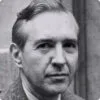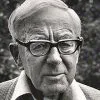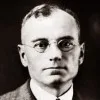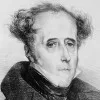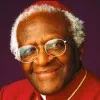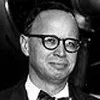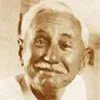He that does a Memorable Action, and those that Report it, are all but short-liv’d Things.
[Πᾶν ἐφήμερον, καὶ τὸ μνημονεῦον καὶ τὸ μνημονευόμενον.]
Marcus Aurelius (AD 121-180) Roman emperor (161-180), Stoic philosopher
Meditations [To Himself; Τὰ εἰς ἑαυτόν], Book 4, ch. 35 (4.35) (AD 161-180) [tr. Collier (1701)]
(Source)
(Source (Greek)). Alternate translations:All things are transitory, and, as it were, but for a day; both those who remember; and the things, and persons remembered.
[tr. Hutcheson/Moor (1742)]Everything is only for a day, both that which remembers and that which is remembered.
[tr. Long (1862)]He that does a memorable action, and those that report it, are all but short-lived things.
[tr. Collier/Zimmern (1887)]Everything is but for a day, remembrancer alike and the remembered.
[tr. Rendall (1898)]All things are for a day, both what remembers and what is remembered.
[tr. Hutcheson/Chrystal (1902)]Ephemeral all of them, the rememberer as well as the remembered!
[tr. Haines (Loeb) (1916)]All is ephemeral, both what remembers and what is remembered.
[tr. Farquharson (1944)]All of us are creatures of a day; the rememberer and the remembered alike.
[tr. Staniforth (1964)]All is ephemeral, both that which remembers and that which is remembered.
[tr. Hard (1997 ed.)]Everything transitory -- the knower and the known.
[tr. Hays (2003)]All is ephemeral, both memory and the object of memory.
[tr. Hammond (2006)]They are all short-lived, both those who remember and the remembered.
[tr. Needleman/Piazza (2008)]All is ephemeral, both that which remembers and that which is remembered.
[tr. Hard (2011 ed.)]Everything is transitory, both that which remembers and that which is remembered.
[tr. Gill (2013)]
Quotations about:
historian
Note not all quotations have been tagged, so Search may find additional quotes on this topic.
I have always been — I think any student of history almost inevitably is — a cheerful pessimist.
Jacques Barzun (1907-2012) French-American historian, educator, polymath
Quoted in Thomas Vinciguerra, “Jacques Barzun ’27: Columbia Avatar,” Columbia College Today (2006-01)
(Source)
Barzun is being quoted in this particular instance from an unclear source, possibly the Independent Women's Forum in 2000.
Study the historian before you begin to study the facts. This is, after all, not very abstruse. It is what is already done by the intelligent undergraduate who, when recommended to read a work by that great scholar Jones of St. Jude’s, goes round to a friend at St. Jude’s to ask what sort of chap Jones is, and what bees he has in his bonnet. When you read a work of history, always listen out for the buzzing. If you can detect none, either you are tone deaf or your historian is a dull dog. The facts are really not at all like fish on the fishmonger’s slab. They are like fish swimming about in a vast and sometimes inaccessible ocean; and what the historian catches will depend partly on chance, but mainly on what part of the ocean he chooses to fish in and what tackle he chooses to use – these two factors being, of course, determined by the kind of fish he wants to catch. By and large, the historian will get the kind of facts he wants. History means interpretation.
E. H. Carr (1892-1982) British historian, journalist, international relations theorist [Edward Hallett "Ted" Carr]
What Is History?, ch. 1 (1961)
(Source)
Since I do not admit that a person without bias exists, I think the best that can be done with a large-scale history is to admit one’s bias and for dissatisfied readers to look for other writers to express an opposite bias. Which bias is nearer to the truth must be left to posterity.
Bertrand Russell (1872-1970) English mathematician and philosopher
Autobiography, Vol 2: 1914-1944, ch. 6 “America, 1938-1944” (1968)
(Source)
To my mind, a man without a bias cannot write interesting history — if, indeed, such a man exists. I regard it as mere humbug to pretend to a lack of bias.
Bertrand Russell (1872-1970) English mathematician and philosopher
Autobiography, Vol 2: 1914-1944, ch. 6 “America, 1938-1944” (1968)
(Source)
Historians can sometimes explain, or at any rate discuss the immediate causes of some great event. Beyond that they can do little more than arrive at the platitude that every generation is, to some extent, responsible for what happened afterwards. In this way, we can finally reach the preposterous conclusion that the ancient Romans were responsible for the First World War, when they failed to civilize the Germans. This is sometimes called learning from history.
A. J. P. Taylor (1906-1990) British historian, journalist, broadcaster [Alan John Percivale Taylor]
“What Else Indeed?” New York Review of Books (5 Aug 1965)
(Source)
History is not a catalogue but a version of events … a convincing version of events. If an historian is any good, he is convinced by his own version of events and then tries to put this conviction across.
A. J. P. Taylor (1906-1990) British historian, journalist, broadcaster [Alan John Percivale Taylor]
“The view from Twisden Rd.”, interview by Duncan Fallowell, The Spectator (28 May 1983)
(Source)
Men write history for the same reason they write poetry, study the properties of numbers, or play football — for the joy of creation; men read history for the same reason they listen to music or watch cricket — for the joy of appreciation.
A. J. P. Taylor (1906-1990) British historian, journalist, broadcaster [Alan John Percivale Taylor]
“The Historian,” Manchester Guardian (5 Aug 1938)
(Source)
The contemporary has no perspective; everything is in the foreground and appears the same size. Little matters loom big, and great matters are sometimes missed because their outlines cannot be seen. Vietnam and Panama are given four-column headlines today, but the historian 50 or 100 years hence will put them in a chapter under a general heading we have not yet thought of.
Barbara W. Tuchman (1912-1989) American historian and author
“Can History Be Served Up Hot?” New York Times (8 Mar 1964)
(Source)
Left to themselves, the facts do not speak; left to themselves they do not exist, not really, since for all practical purposes there is no fact until some one affirms it.
Carl L. Becker (1873-1945) American historian
“Everyman His Own Historian” (3), speech, American Historical Association, Minneapolis (29 Dec 1931)
(Source)
Writers the most learned, the most accurate in details, and the soundest in tendency, frequently fall into a habit which can neither be cured nor pardoned — the habit of making history into the proof of their theories.
John Dalberg, Lord Acton (1834-1902) British historian, politician, writer
Speech (1877-02-28), “The History of Freedom in Antiquity,” Bridgenorth Institute
(Source)
Advice to persons about to write History: Don’t. […]
In the Moral Sciences Prejudice is Dishonesty.
A Historian has to fight against temptations special to his mode of life, temptations from Country, Class, Church, College, Party, Authority of talents, solicitation of friends.
The most respectable of these influences are the most dangerous.
The historian who neglects to root them out is exactly like a juror who votes according to his personal likes or dislikes.
In judging men and things Ethics go before Dogma, Politics or Nationality.
The Ethics of History cannot be denominational.
Judge not according to the orthodox standard of a system religious, philosophical, political, but according as things promote, or fail to promote the delicacy, integrity, and authority of Conscience.
Put conscience above both System and Success.
History provides neither compensation for suffering nor penalties for wrong.
The main work of the historian is not to record, but to evaluate; for, if he does not evaluate, how can he know what is worth recording?
E. H. Carr (1892-1982) British historian, journalist, international relations theorist [Edward Hallett "Ted" Carr]
What is History?, ch. 1 (1961)
(Source)
Recounting the historiographical writings of Benedetto Croce in the 1920s.
History, like beauty, depends largely on the beholder, so when you read that, for example, David Livingstone discovered the Victoria Falls, you might be forgiven for thinking that there was nobody around the Falls until Livingstone arrived on the scene.
Desmond Tutu (1931-2021) South African cleric, Anglican Archbishop of Cape Town, Nobel Laureate
“Fortieth Anniversary of the Republic,” speech (1981)
See Richard Cumberland.
No one can understand history without continually relating the long periods which are constantly mentioned to the experiences of our own short lives. Five years is a lot. Twenty years is the horizon to most people. Fifty years is antiquity. To understand how the impact of destiny fell upon any generation of men one must first imagine their position and then apply the time-scale of our own lives.
The present, as historians well know, re-creates the past. This is partly because, once we know how things have come out, we tend to rewrite the past in terms of historical inevitability.
Civilization is a stream with banks. The stream is sometimes filled with blood from people killing, stealing, shouting and doing things historians usually record, while on the banks, unnoticed, people build homes, make love, raise children, sing songs, write poetry, and even whittle statues. The story of civilization is the story of what happened on the banks. Historians are pessimists because they ignore the banks for the river.
William James (Will) Durant (1885-1981) American historian, teacher, philosopher
Quoted in Jim Hicks, “Spry Old Team Does It Again,” Life (18 Oct 1963)
(Source)
Durant says this is what he came up with when asked to sum up civilization in a half-hour ("I did it in less than a minute, this way").
This source is Durant recounting the passage in a Life magazine interview, which is often mis-cited as the origin. The quote is also sometimes vaguely attributed to his and Ariel Durant's The Story of Civilization, their 11-volume work (1935-75) (the Life article was on the publication of Vol. 8, The Age of Louis XIV (1963)), but I cannot find it in any of the volumes to that date.
An historian is an unsuccessful novelist.
H. L. Mencken (1880-1956) American writer and journalist [Henry Lewis Mencken]
A Little Book in C Major, ch. 7, § 21 (1916)
(Source)
Variants:HISTORIAN. An unsuccessful novelist.
[A Book of Burlesques, "The Jazz Webster" (1924)]Historian - An unsuccessful novelist.
[Chrestomathy, ch. 30 "Sententiae" (1949)]
Everybody knows that the first law of history is not daring to say anything false; that the second is daring to say everything that is true; that there should be no suggestion of partiality, none of animosity when you write.
[Nam quis nescit primam esse historiae legem, ne quid falsi dicere audeat? Deinde ne quid veri non audeat? Ne quae suspicio gratiae sit in scribendo? Ne quae simultatis?]
Marcus Tullius Cicero (106-43 BC) Roman orator, statesman, philosopher
De Oratore [On the Orator, On Oratory], Book 2, ch. 15 (2.15) / sec. 62 (55 BC) [tr. May/Wisse (2001)]
(Source)
(Source (Latin)). Alternate translations:For, is there a Man ignorant, that the first Rule of History is, that an Historian shall not dare to advance a Falsity; the next, that there is no Truth but what he shall dare to tell? That in Writing, he shall be free of all Prepossession; of all Pique?
[tr. Guthrie (1755)]For, is there a man ignorant that the first rule of history is that an historian shall not dare to advance a falsehood; the next, that there no truth but what he shall dare to tell? That the writer should be actuated neither by favour, or by prejudice?
[Source (1808)]For who is ignorant that it is the first law in writing history, that the historian must not dare to tell any falsehood, and the next, that he must be bold enough to tell the whole truth? Also, that there must be no suspicion of partiality in his writings, or of personal animosity?
[tr. Watson (1860)]Who need be informed that the first law of history is, to have the honesty to state no falsehood, the next, the courage to suppress no truth, and to avoid all suspicion of undue bias or personal animosity?
[tr. Calvert (1870)]Who does not recognise that the first law of history is that we shall never dare to say what is false; the second that we shall never fear to say what is true; that everything we write shall be free from any suspicion of favoritism or flattery?
[ed. Harbottle (1906)]For who does not know history's first law to be that an author must not dare to tell anything but the truth ? And its second that he must make bold to tell the whole truth? That there must be no suggestion of partiality anywhere in his writings? Nor of malice?
[tr. Sutton/Rackham (1940)]The first law for the historian is that he shall never dare utter an untruth. The second is that he shall suppress nothing that is true. Moreover, there shall be no suspicion of partiality in his writing, or of malice.
[Bartlett's]


